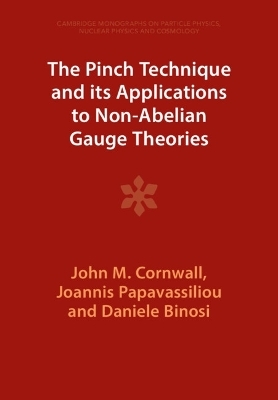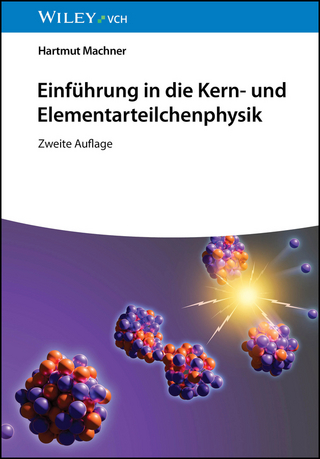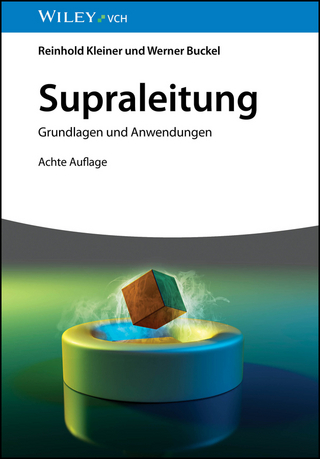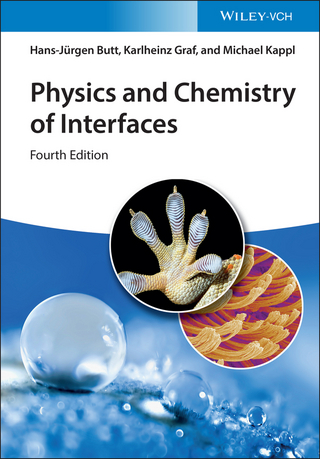
The Pinch Technique and its Applications to Non-Abelian Gauge Theories
Cambridge University Press (Verlag)
978-1-009-40243-9 (ISBN)
Non-Abelian gauge theories, such as quantum chromodynamics (QCD) or electroweak theory, are best studied with the aid of Green's functions that are gauge-invariant off-shell, but unlike for the photon in quantum electrodynamics, conventional graphical constructions fail. The pinch technique provides a systematic framework for constructing such Green's functions, and has many useful applications. Beginning with elementary one-loop examples, this book goes on to extend the method to all orders, showing that the pinch technique is equivalent to calculations in the background field Feynman gauge. The Schwinger–Dyson equations are derived within the pinch technique framework, and are used to show how a dynamical gluon mass arises in QCD. Finally the volume turns to its many applications. This book is ideal for elementary particle theorists and graduate students. This 2011 title has been reissued as an Open Access publication on Cambridge Core.
John M. Cornwall is Distinguished Professor of Physics Emeritus in the Department of Physics and Astronomy, University of California, Los Angeles. Inventor of the pinch technique, he has made many other contributions to the formalism and applications of quantum field theory, as well as to space plasma physics. He has contributed to the technical analysis of many public policy issues, ranging from ballistic missile defense to the human genome. Joannis Papavassiliou is a researcher in the Department of Theoretical Physics and IFIC, the University of Valencia–CSIC. A large part of his work has been devoted to the development of the pinch technique, both its formal foundation and its many applications, and he has published articles on quantum field theory and particle phenomenology. Daniele Binosi is a researcher at the European Centre for Theoretical Studies in Nuclear Physics and Related Areas (ECT*) and Fondazione Bruno Kessler. In addition to his work on extending the pinch technique and its applications, he leads several policy-related European projects on the development of the vision and sustainability of quantum information foundations and technologies.
Introduction; 1. The pinch technique at one loop; 2. Advanced pinch technique – still one loop; 3. Pinch technique to all orders; 4. The pinch technique in the Batalin–Vilkovisky framework; 5. The gauge technique; 6. Schwinger–Dyson equations in the pinch technique framework; 7. Non-perturbative gluon mass and quantum solitons; 8. Nexuses, sphalerons, and fractional topological charge; 9. A brief summary of d=3 NAGTs; 10. The pinch technique for electroweak theory; 11. Other applications of the pinch technique; Appendix; Index.
| Erscheinungsdatum | 18.07.2023 |
|---|---|
| Reihe/Serie | Cambridge Monographs on Particle Physics, Nuclear Physics and Cosmology |
| Zusatzinfo | Worked examples or Exercises |
| Verlagsort | Cambridge |
| Sprache | englisch |
| Maße | 170 x 244 mm |
| Gewicht | 530 g |
| Themenwelt | Naturwissenschaften ► Physik / Astronomie ► Atom- / Kern- / Molekularphysik |
| Naturwissenschaften ► Physik / Astronomie ► Hochenergiephysik / Teilchenphysik | |
| ISBN-10 | 1-009-40243-9 / 1009402439 |
| ISBN-13 | 978-1-009-40243-9 / 9781009402439 |
| Zustand | Neuware |
| Haben Sie eine Frage zum Produkt? |
aus dem Bereich


